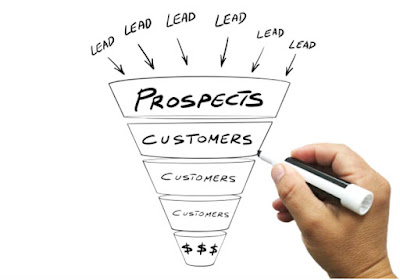Did you Know how Many Percentages of Purchases are Made at the First Contact Number?
Is only 2% of customers take a step forward and make a purchase. The fourth contact number is only 10%, and on average, a customer needs approximately 5-8 contact moments before a purchase. These moments are combined to form a customer journey, and it is different for every customer.
What are marketing funnels exactly, and why do they matter so much? Let’s take a look at the clear definition of this term.
What are Marketing Funnels?
It is a visual portrayal of the steps a visitor takes from the first when they find out about your brand until they convert. Understanding the steps provide a deep insight into why some customers convert and why some don’t. That is why it is very important to respond to this are so that potential customers get the right information at the right time. The case is the same with content marketing funnel as customers need to take quite a few steps to get the required information from your website. This process of taking actions and making a purchase is called a marketing and sales funnel.
Steps of Funnel:
The marketing funnel functions in a unified way. When every section works towards achieving a special goal, the collision in a journey is reduced and creating a path that builds trust with the audience boost awareness of your brand. The most popular type of marketing funnel is of four types:
Attention: A prospective customer sees your social media post, advertisement, or hear about your brand from a friend or anyone else.
Interest: Customers think that you can solve their problem. If you are an owner of a content writing company, you must take care of the content marketing funnel as it will provide you with a report to see where you are losing your customers.
Desire: If the customer is satisfied with your prospect, they will show an interest in buying the product.
Action: The prospect will allow customers to take action. They buy your item, schedule a demonstration and take other steps that you want them to take.
Is the Case the Same in Every Business?
Well, the case is not the same as the actions differ based on customer and industry. You want them to purchase, sign up or fill up a form on your website, and they do the same thing that you want them to do; it is termed as conversion.
Let’s elucidate the topic with a picture that will help readers to understand better:
Additional steps can be taken in between each of these steps, but they do not matter in the marketing funnel unless they make any contribution to the final action. As the customers continue to take the next steps, some dropout and the crown's size narrows down. Losing customers is not a bad thing because the truth is everyone in your funnel will convert. The top of your funnel is where everyone goes to visit your site or view your marketing campaign. Only the most interested and impressed customers will move down.So when people say “widen your funnel”, now you know what they are addressing.
By widening the funnel, one can cast a larger net by advertising to a new audience, raising brand awareness, or including inbound marketing to attract more people to their site. If there are more people in the funnel, the wider it will be.
Some of the Other Types of the Funnel are:
Email funnels
Sales funnels
Video marketing funnels
Lead magnet funnels
Webinar funnels
Home page funnels
Why they matter?
One is not limited in using the marketing funnel strictly for signing up and purchasing. If you own a content writing agency, you can use a content marketing funnel throughout your website to see how visitors move through a specific website flow. It provides access to data that will allow you to know where you are losing customers. Once you have the required data and report regarding the roadblocks, you can optimize your funnel as per the requirement. Now the point is how we can implement content writing service in local business strategy.
Conclusion: Thus, creating a funnel will allow you to thoroughly investigate potential customers and how you can reach them to help with your products and services. Hence, it is important to determine the turning point between marketing and sales that can lead you to a greater prospect.
